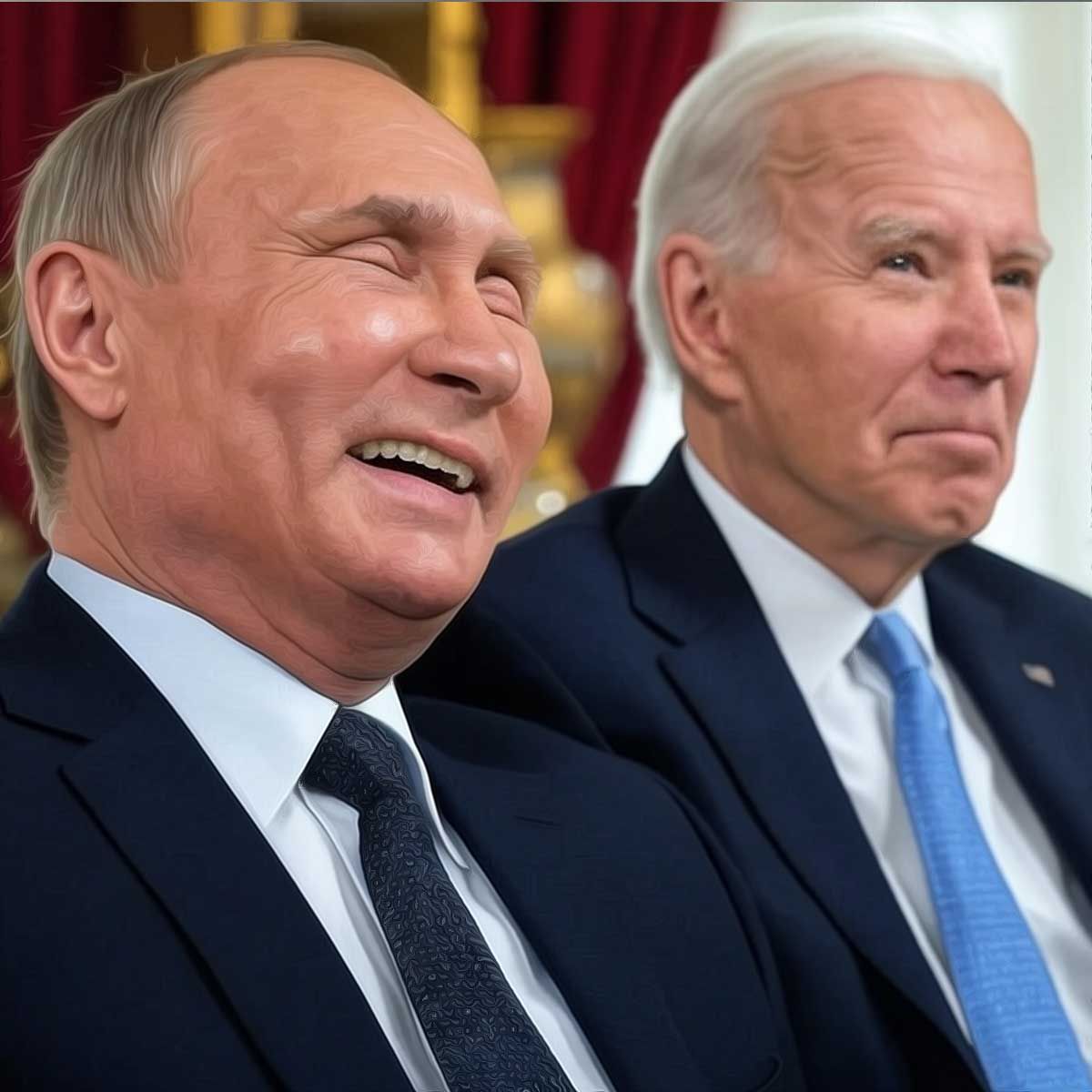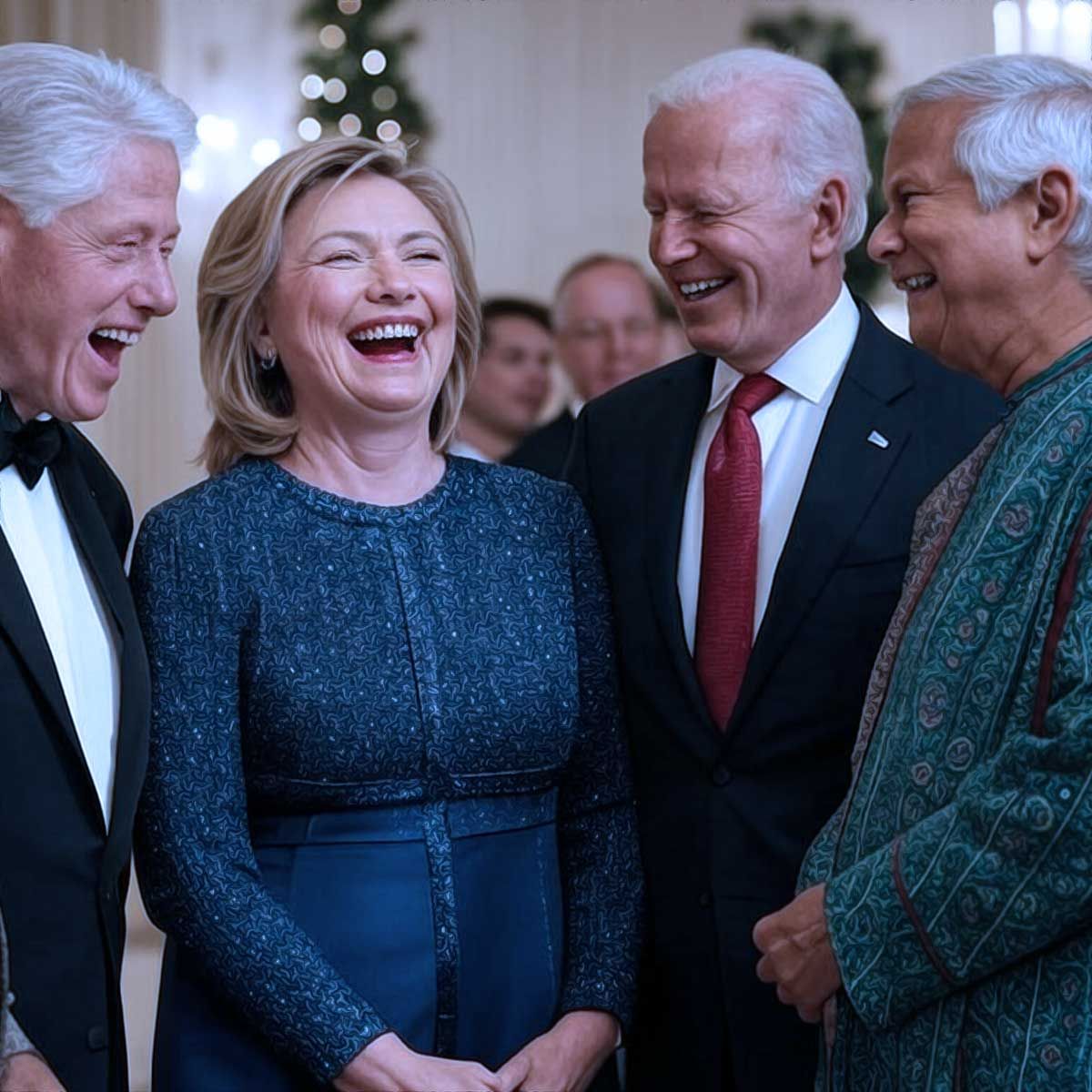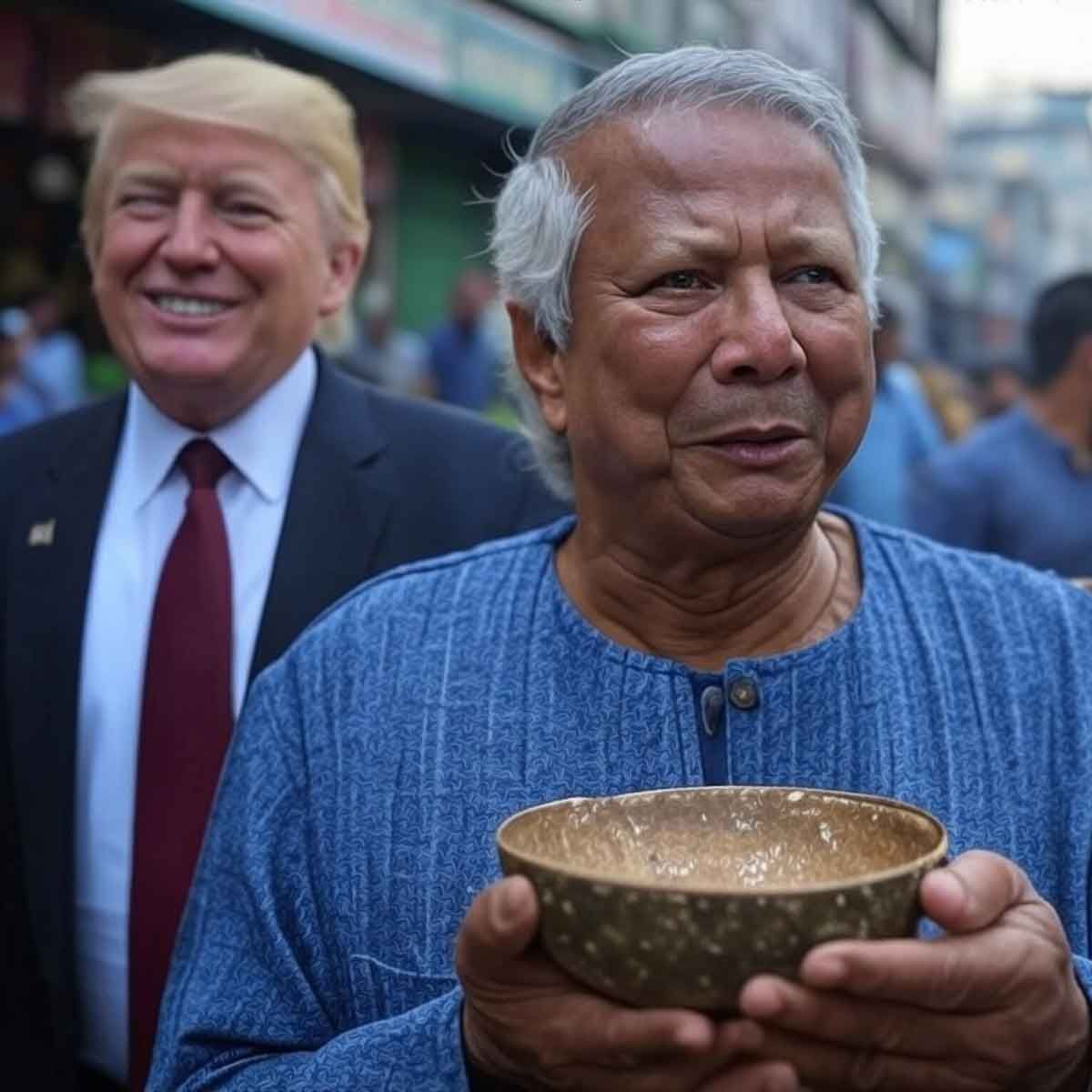Sanatan Articles
JOIN SATYAAGRAH SOCIAL MEDIA
Wikileaks and 5 lesser know facts of Indira Gandhi: Nuclear technology, corruption and foreign relations
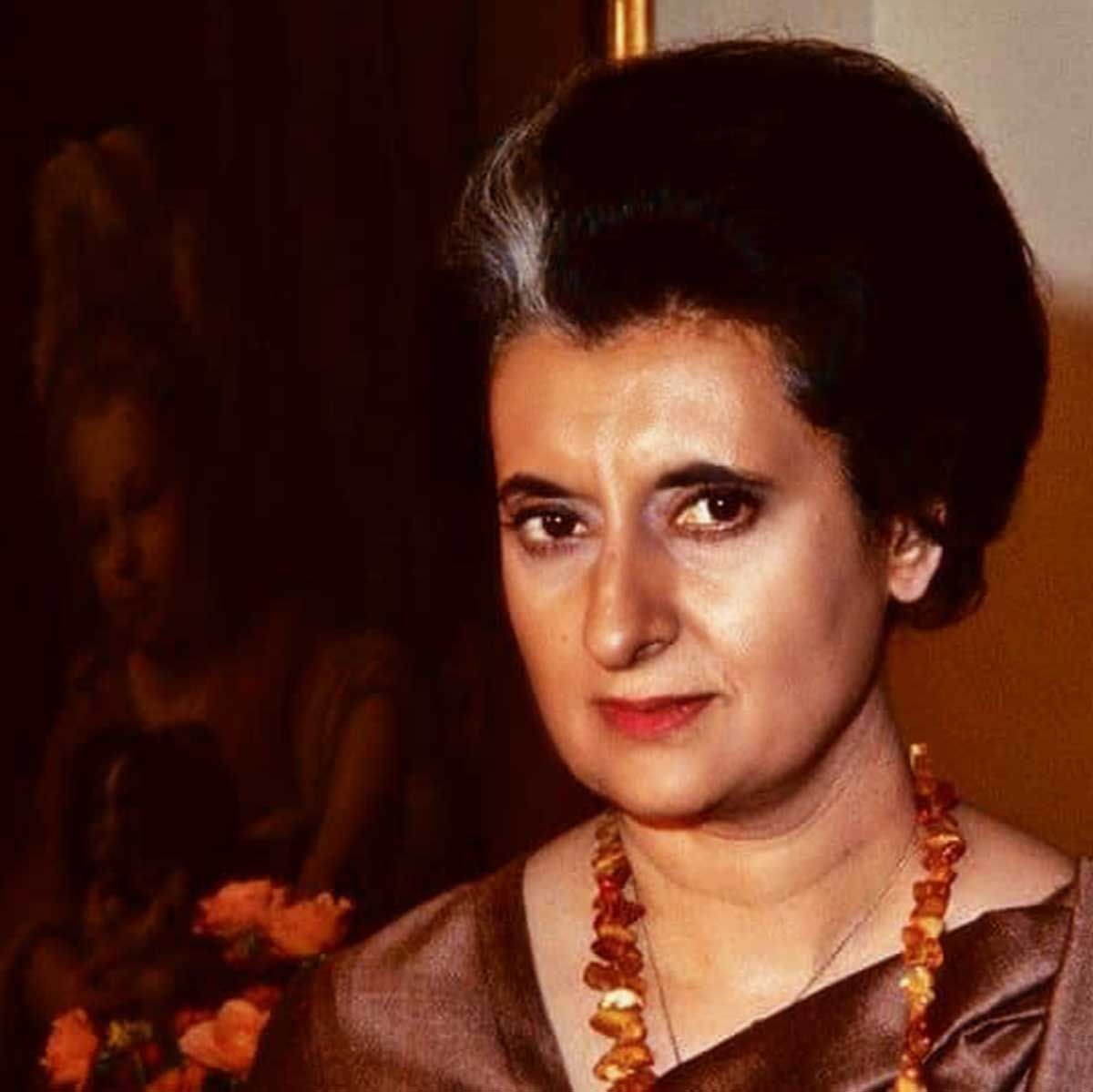
On the 31st of October, 37 years ago, the then Prime Minister of India, Indira Gandhi, was assassinated by members of her own security. As a Prime Minister of India, her accomplishments and failures are quite well known. However, there are certain aspects of her regime that have not garnered much attention. There are some other startling revelations that were made in Wikileaks cables.
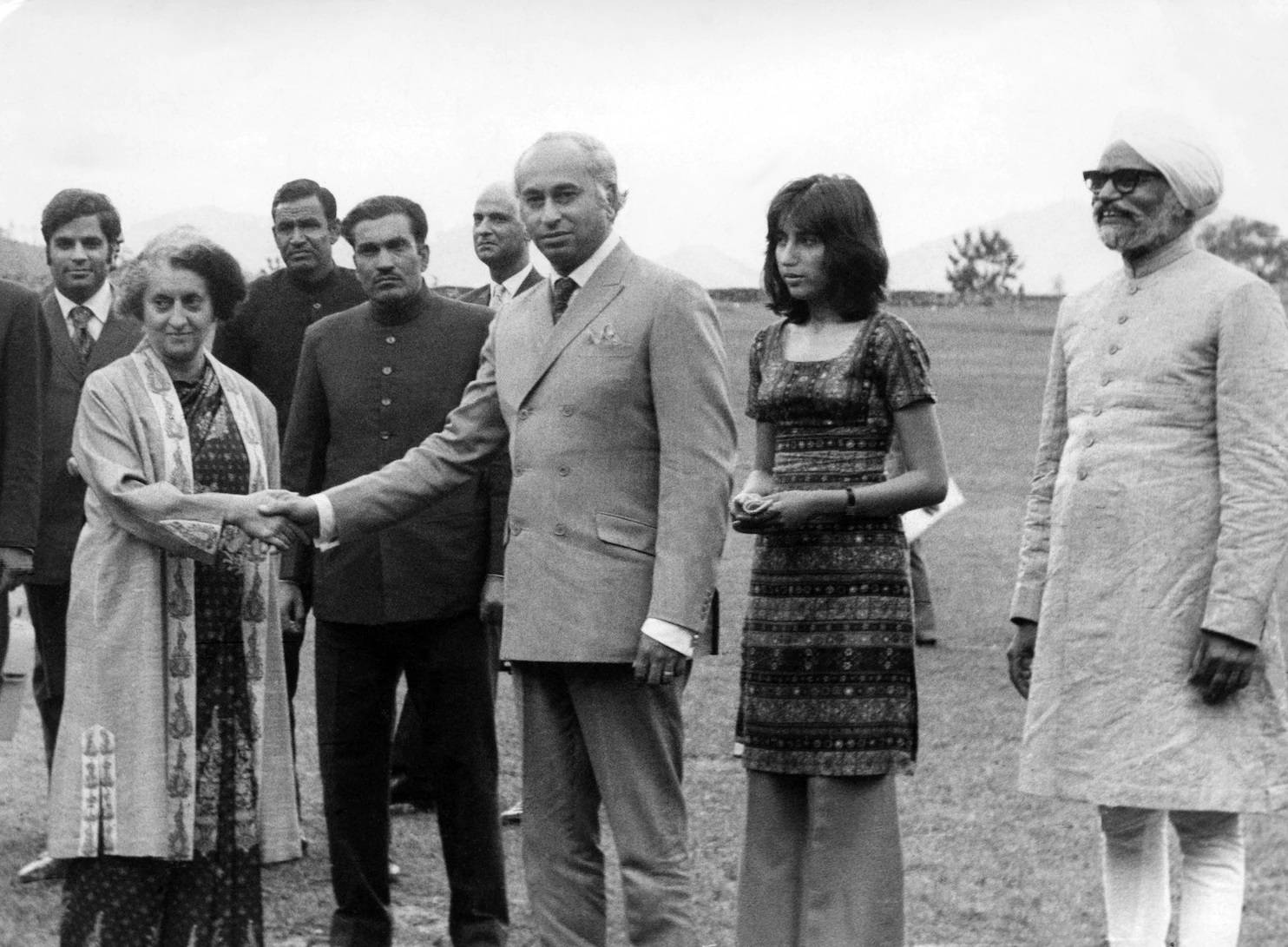 PM Indira gandhi and PM Zulfiqar Ali Bhutto |
Indira Gandhi’s willingness to share India’s nuclear technology with Pakistan
When searched on the WikiLeaks website with the keywords ‘Indira Pakistan Nuclear’, the letter written by Indira Gandhi to the Pakistan PM Zulfiqar Ali Bhutto can be found in the search results. Also, in the search results, Indira Gandhi’s statement in the Parliament on the nuclear explosion can be found.
In 2013 it was revealed that Indira Gandhi was willing to share India’s nuclear technology with Pakistan after its first nuclear test in 1974. The US embassy quoted her as saying, “I have explained in my letter to Prime Minister Bhutto the peaceful nature and the economic purposes of this experiment and have also stated that India is willing to share her nuclear technology with Pakistan in the same way she is willing to share it with other countries, provided proper conditions for understanding and trust are created. I once again repeat this assurance.”
There also appears to a genuine desire to assuage Pakistan’s concern regarding India’s nuclear tests. One cable mentions that Prime Minister Indira Gandhi wrote to her Pakistani counterpart that India’s nuclear tests did not constitute any threat to Pakistan. However, it also mentions that as far the author of the cable is concerned, they can confirm that the letter only stressed that scientific experiments by India should not be allowed to become a controversy.
In her statement to the Parliament, she also said, “the Atomic Energy Commission is at present engaged in studying the results of the experiment. It is expected that this process will take about six months. In keeping with scientific tradition, the Atomic Energy Commission proposes to publish papers giving the results of the experiment for the benefit of the scientific world.”
Also, in an interview with Danish TV, Indira Gandhi said, “we are willing to share the results of our experiment with Pakistani scientists and other scientists of the world.”
These statements were made shortly after India's first nuclear test in Pokhran, and in the wake of Pakistani outrage at the test. Pakistan did not view the test as a "peaceful nuclear explosion", and canceled talks on normalisation of relations. Pakistan's Prime minister Zulfikar Ali Bhutto vowed in June 1974 that he would never succumb to "nuclear blackmail" or accept "Indian hegemony or domination over the subcontinent".
Pakistan conducted its own nuclear testing two weeks after India's second test.
"Gandhi's offer to share nuclear technology with Pakistan was not the move of a potential nuclear proliferator. Instead, it showed the confidence of a leader who probably believed that India, after the test, could seamlessly become part of the international nuclear system, where New Delhi could become a legitimate nuclear supplier. Gandhi's confidence, as it turned out, was misplaced", said the Times of India in its report, which added that she was merely showing foresight.
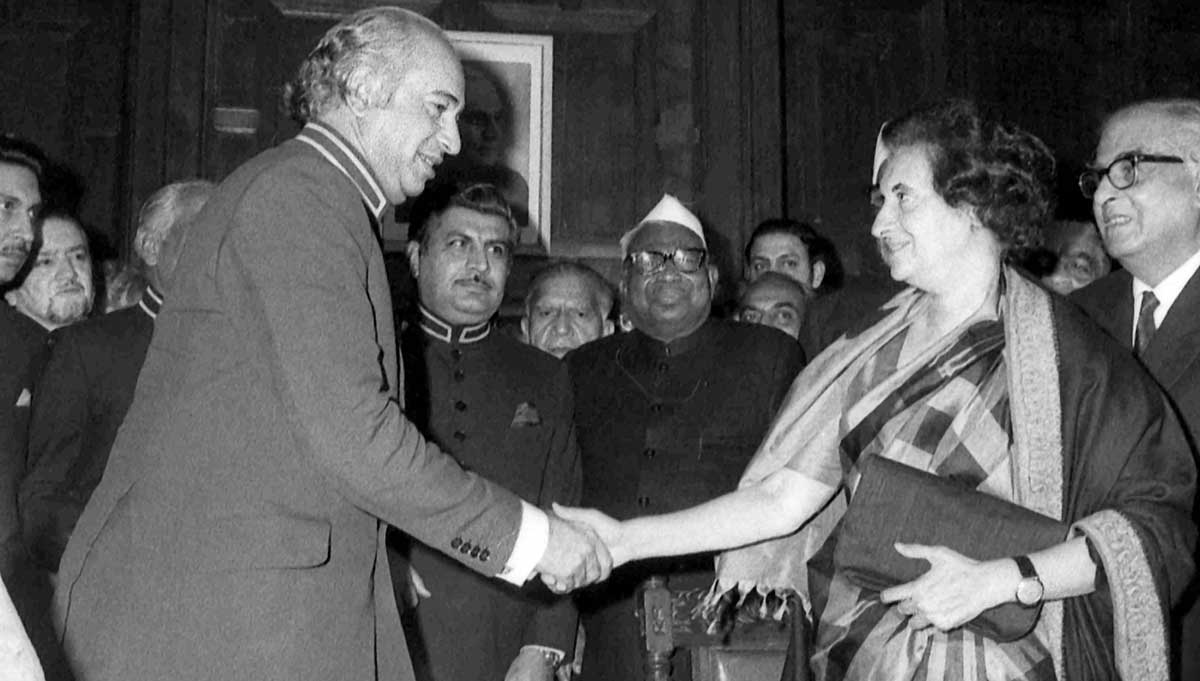 Simla Agreement 1972 |
The desire for peace after the war of 1971
In another letter to her Pakistani counterpart, Prime Minister Indira Gandhi elaborated on India’s opposition to the US resuming its arms supplies to Pakistan. “We have regretted this decision because it threatens to increase tensions in our region,” she wrote. The letter also reveals that after India’s war with Pakistan in 1971, Indira Gandhi did seek to establish peace between the two countries. Imploring the Pakistani administration to desist from creating an arms race in the region and maintain an environment that could felicitate cooperation, she insisted that both sides must be more cautious about their public posturing.
She wrote, “We feel strongly that both our countries must desist from propaganda against each other. Nothing can be more damaging to the prospects of cooperation and the fulfilment of agreements already reached than the resumption of hostile public postures. From our side, I can assure you we will do nothing to encourage suspicion and hostility towards Pakistan and I hope your government will also exercise similar restraints.”
Among her failures, the least talked about was also her worst. Until all official records related to the Simla Agreement signed on July 2, 1972 are made public, we will never know what led Indira Gandhi to conclude such a disadvantageous peace with Pakistan following the 1971 war. The Simla Agreement, and the subsequent Delhi Agreement, gave Pakistan everything it wanted: the territory it lost to India in the war and the safe return of all its soldiers without one of them being held responsible for the genocidal campaign unleashed in what is now Bangladesh.
The Simla Agreement reads more like a communiqué than a peace agreement with a country that had waged war on India. Nothing in the Agreement pinned Pakistan down to future good behaviour. It also included some laughable expectations, such as the clause requiring both governments “to take all steps within their power to prevent hostile propaganda directed against each other”.
Hardly had the Agreement been signed when the Pakistani Prime Minister Zulfikar Ali Bhutto, who had never hidden his intention to make Pakistan a nuclear power, began disparaging India. Indira Gandhi ought to have taken note. Writing in the Foreign Affairs magazine in April 1973, Bhutto disingenuously observed that “Pakistan had been the victim of unabashed aggression: her eastern part seized by Indian forces. It was this fact that made it difficult for our people to be reconciled to the fait accompli, more so because the invasion was not an isolated phenomenon. On the contrary, it was but the climax of a long series of hostile and aggressive acts by India against Pakistan since the establishment of the two as sovereign and independent states”.
What the Simla agreement failed to achieve for India could well have been obtained through the 1973 Delhi Agreement signed by India, Pakistan and Bangladesh.
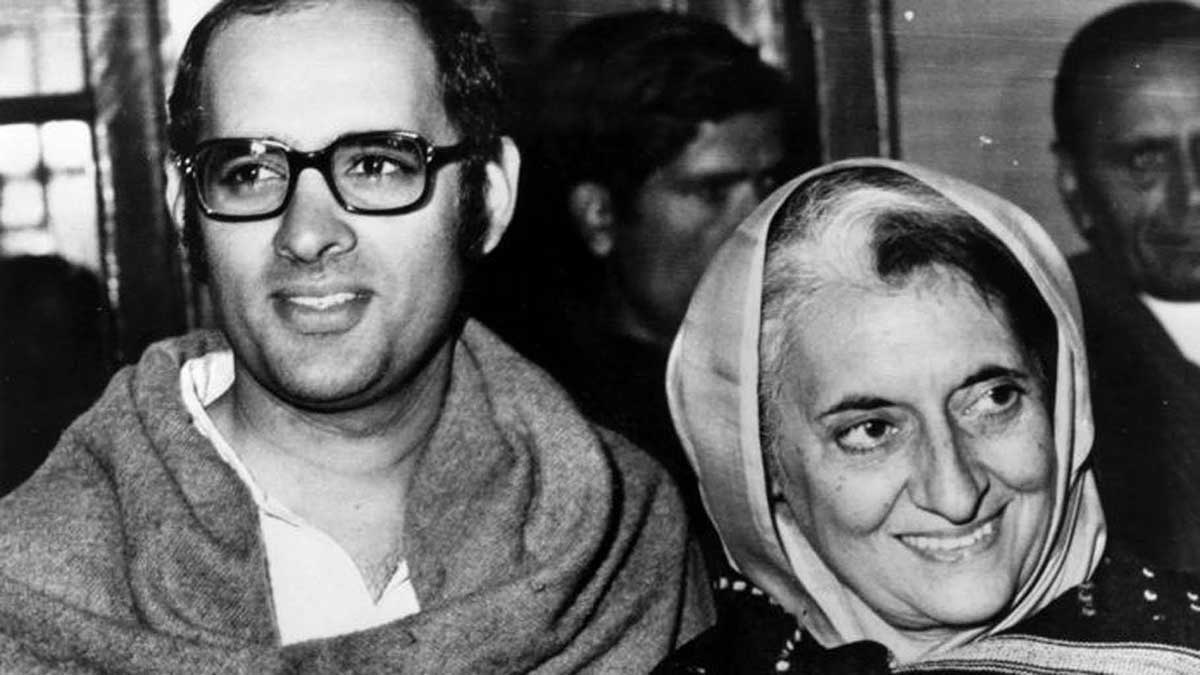 |
A Mole in Indira’s inner circle
In 2013, it was by WikiLeaks cables that the USA had a mole inside Indira’s inner circle who is constantly referred to as a “household” source. In a US Embassy cable that claimed Sanjay Gandhi and her secretary R.K. Dhawan was the figure behind the imposition of emergency, it is said, “This is confirmed by a source close to the PM’s household. Both are non-ideological, extremely authoritarian in their general approach, and focused only on keeping Mrs Gandhi in power.”
A year later, a WikiLeaks cable showed that Rajiv Gandhi’s close friend Subramanian Swamy was passing some information. The cable says, “Subramanian Swamy suggested to department officer ten days ago that he heard Mrs Gandhi was prompted to set the March election date because she wanted to square things away in view of her failing health.”
By the middle of 1976, the cables had begun to guess that then Prime Minister Indira Gandhi could announce general elections in 1977.
The cable reveals the former Prime Minister's alleged plans to "remodel" the Constitution on the lines of the American and French governments. "A source close to the Prime Minister's household has told us that consideration is being given to having the parliamentary session, scheduled to meet July 21, become a 'constituent assembly' to examine the Indian Constitution," the cable reads.
"As previously reported, there is considerable discussion in government and Congress party circles concerning altering the Indian constitution with the French and American constitutions most often cited as useful models," the relevant portion from the cable reads attributing it to the "household source".
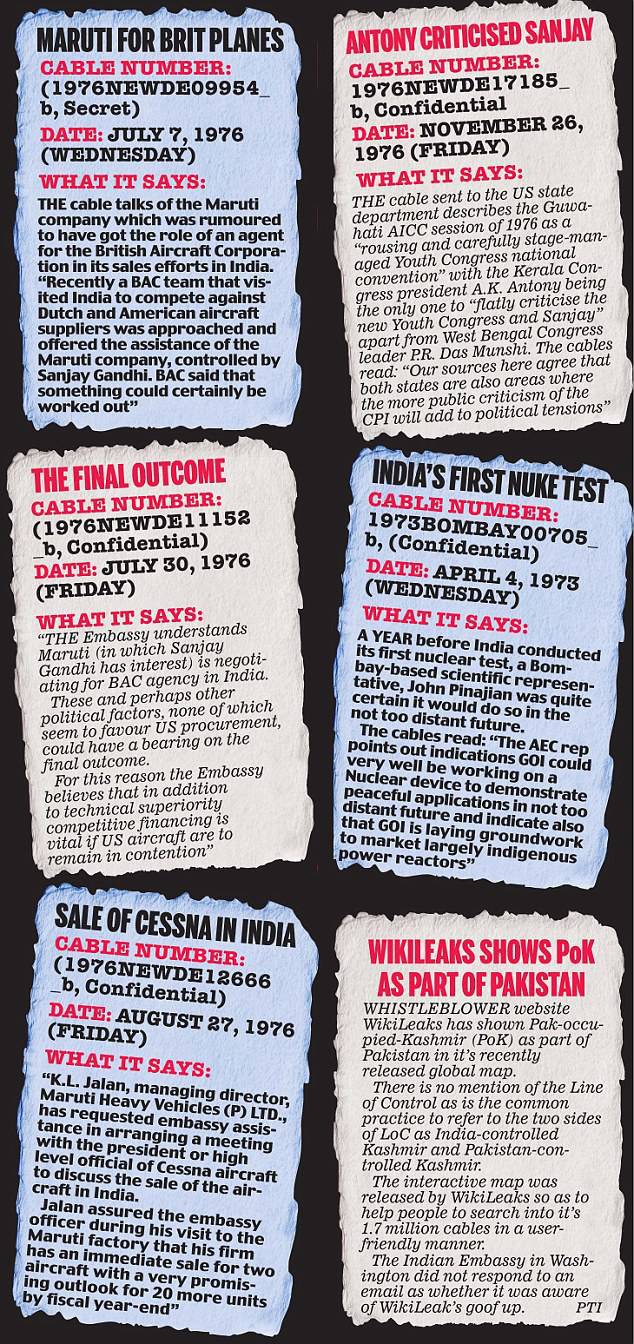 |
The cables mentioned that both Sanjay and Dhawan lacked political ideology and were despotic in nature. Their main agenda was to keep Indira Gandhi in power at any cost, added the cables.
The latest documents also cover Sanjay's ambitions to enter the aviation industry. According to the latest documents, two Maruti companies in which Sanjay Gandhi had major stakes, had actively sought help from US diplomatic channels to enter the aviation business.
The cable identifies the two Maruti companies thus: "In addition to ML, the Maruti group includes the following companies: (a) Maruti Technical Services Private Limited... (B) Maruti Heavy Vehicles Private Limited."
Maruti was also rumoured to have got, the role of agent for the British Aircraft Corporation in its sales efforts in India during the 1970s.
A cable on July 30, 1976 reads "the embassy understands Maruti (in which Sanjay Gandhi has interest) is negotiating for BAC agency in India."
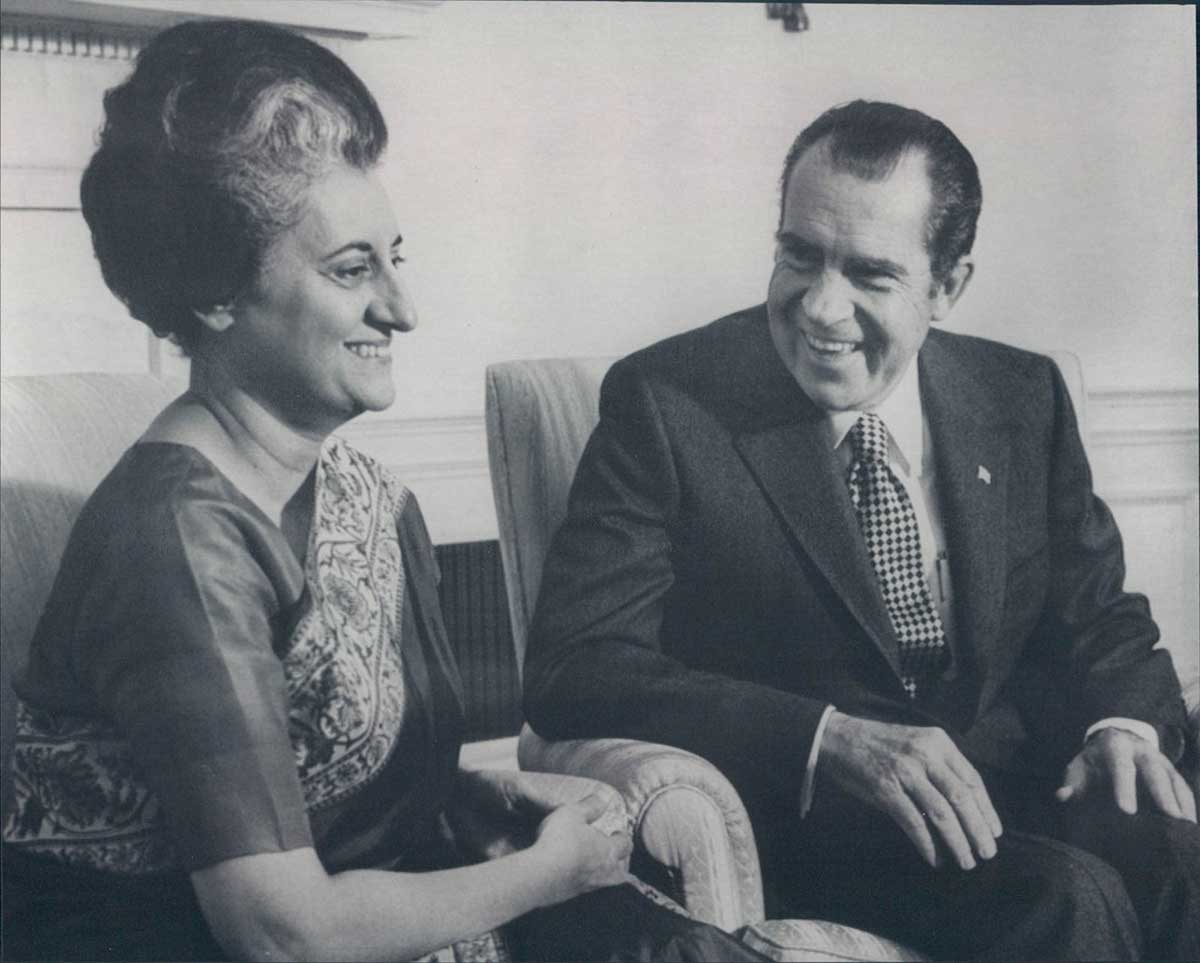 Indian Prime Minister Indira Gandhi and US President Richard Nixon - 1971 |
Washington’s unease with Indira Gandhi’s rhetoric
There was also a concern in Washington regarding what they perceived as India’s duplicity. A cable talks about the India government under Indira Gandhi being very vocal in public in its criticism of the US military presence at Vietnam but mentions Hurbert Humphrey, the then Vice President and Democratic Party nominee for US Presidential Elections 1968, claiming that Indira Gandhi had told him in private that “It was absolutely essential that we (American Forces) were there”.
The said cable also reveals that the Americans believed the Indian government looked up to the United States to keep China under check. The cable also indicates that the Indians recognized the Chinese threat much earlier than the Americans. The cable further states, “India, it is sometimes hinted, protests against the US presence at Diego Garcia for form’s sake and to please its Parliament and that in reality, the Indians are glad that the US is there to check the growing Soviet power in the region.”
Another cable reveals that foreign powers were concerned about Indira’s Gandhi rhetoric that foreign powers were meddling with internal affairs of the country. Their “concern” and “dismay” was conveyed to the Government of India through Ambassador Saxbe and that they were evidently “disturbed”. Ambassador Saxbe can be seen saying in a separate cable, “In the best light, Mrs Gandhi’s elections could be seen as pre-election rhetoric; they could also be seen as justification for not holding elections.”
It wasn't just Indira Gandhi that the US administration under Richard Nixon disliked.
TN Kaul, a close aide of the then Prime Minister Gandhi, and the man handpicked by her as India's US ambassador in 1973, was described by the American envoy in India as "arrogant," pro-Soviet and as a man not to be trusted, in cables sent to the US State Department, and accessed by transparency watchdog Wikileaks.
"Kaul, like Nehru family, is Kashmiri Brahmin, assured to the point of arrogance by birth," Daniel Patrick Moynihan, the US ambassador to India wrote to the State Department secret service on March 17, 1973.
"His career has been marked by a pro-Soviet bias and concomitant Anti-American words and deeds."
In the cable, Moynihan accepted that he had not met Kaul personally, but had heard enough from other Western diplomats about the PM's aide to conclude that he was "inclined towards slyness, especially in his dealings with westerners."
Moynihan quotes former US ambassador Foy Kohler as a "slick opportunist." In another cable, the former Indian ambassador to the US, GL Mehta indicated that he did not believe Kaul was the right choice for the post of ambassador to the US.
But the cables also point to the recognition among the Americans that Kaul was a direct Indira Gandhi appointee, and was a "sensitive weathervane of Indian foreign policy."
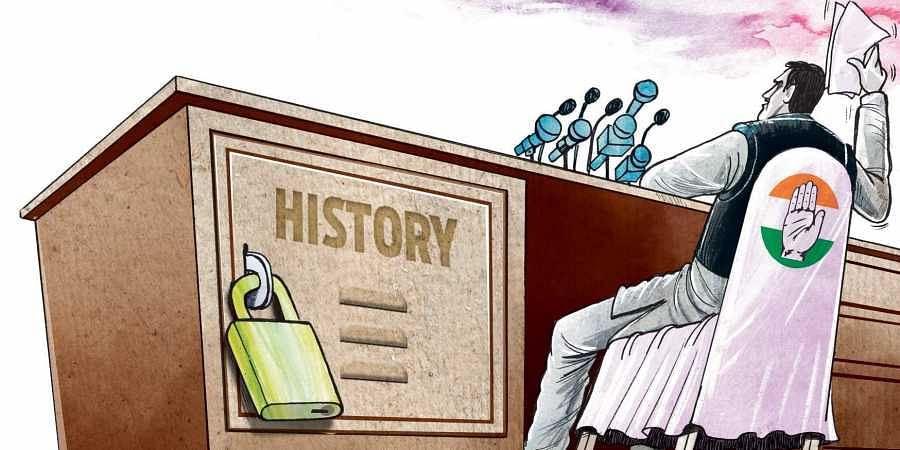 |
The Massive Corruption
A cable from the American embassy in New Delhi to the Secretary of State of the USA in 1976 published on WikiLeaks is expected to send shock-waves across the country as it reveals the extent of corruption prevailing in the country during the Congress regime. The cable reveals that the corruption files were kept in the then Prime Minister Indira Gandhi’s office and no major figure could be charged without her approval. It also says that bribery that involved contributions to the Congress party were considered acceptable.
The cable also reveals that Sanjay Gandhi, a scion of the Nehru-Gandhi dynasty, offered his assistance to the British Aircraft Corporation through the Maruti company, which is addressed as a firm “controlled” by Sanjay Gandhi. The cable also mentions one Civil Aviation Minister who was paid a bribe by an Indian manufacturer for a particular contract.
The cable mentions that the bribe collected mostly went to the party funds minus a commission for the collector. The Congress party is referred to as the ‘United Givers Fund’. The cable also touches upon the havoc wreaked by the ‘License Raj’. It says, “For every document which requires three signatures when one would have been sufficient there are three bribes instead of one.” It also mentions the prevalence of corruption across all spheres of life, from booking a train ticket to securing a seat at the hospital. The author also makes a pertinent observation, “One could easily come to the cynical conclusion that there is a direct and positive relationship between laws against corruption and the extent of corruption itself, i.e., each such law only means that there are more people to bribe.”
The cable also mentions a World Bank Official telling an Embassy Official that he had never seen a case where the original low bidder was awarded a contract. “The World Bank requires the award of contracts to the low bidder but repeated tenderings combined with specification changes are instituted by the GOI until the appropriate bidder becomes low bidder as well,” says the cable. It is also mentioned that punishments for those who take bribes for the Congress are “rare” but should the bribery involve a politician from the opposition camp, then it usually involves strict punishment.
The now unclassified cable reveals that the American official observed that the massive corruption perpetrated by the then Congress government benefited the rich while the poor suffered as a consequence. Reading the communication, one gets the impression that the huge corruption underway in the country during the second term of the UPA government was hardly anything new but merely a continuation of the decades-old legacy of the Indian National Congress.
The cable was recently brought to light by rebel Congress leader, Shehzad Poonawalla on Twitter.
References:
firstpost.com - FP Staff
thehindu.com - Uday Balakrishnan
dailymail.co.uk - By MAIL TODAY REPORTER
hindustantimes.com - By HT Correspondent, New Delhi
opindia.com - Research Team
 Support Us
Support Us
Satyagraha was born from the heart of our land, with an undying aim to unveil the true essence of Bharat. It seeks to illuminate the hidden tales of our valiant freedom fighters and the rich chronicles that haven't yet sung their complete melody in the mainstream.
While platforms like NDTV and 'The Wire' effortlessly garner funds under the banner of safeguarding democracy, we at Satyagraha walk a different path. Our strength and resonance come from you. In this journey to weave a stronger Bharat, every little contribution amplifies our voice. Let's come together, contribute as you can, and champion the true spirit of our nation.
 |  |  |
| ICICI Bank of Satyaagrah | Razorpay Bank of Satyaagrah | PayPal Bank of Satyaagrah - For International Payments |
If all above doesn't work, then try the LINK below:
Please share the article on other platforms
DISCLAIMER: The author is solely responsible for the views expressed in this article. The author carries the responsibility for citing and/or licensing of images utilized within the text. The website also frequently uses non-commercial images for representational purposes only in line with the article. We are not responsible for the authenticity of such images. If some images have a copyright issue, we request the person/entity to contact us at This email address is being protected from spambots. You need JavaScript enabled to view it. and we will take the necessary actions to resolve the issue.
Related Articles
- Was Italian family of Sonia Gandhi involved in the Bofors scam: Papers long buried, questions that were never asked
- Saam Daam Dand Bhed: How Indira and Sanjay Gandhi pulled off the Maruti scam
- Father of the Nation! Absolutely not. Mohandas Karamchand Gandhi was not the father of the nation either officially or otherwise
- ISRO mum on 684 staff dead: 197 suicides and 1,733 deaths at India's nuclear establishments in last 15 yrs
- Depth of Soviet penetration in Indian media is exposed through declassified CIA document from 2011
- Golden time of Nehru dynasty, when assets of country like Indian Navy were used for Vacation and to 'pay respect' to Edwina Mountbatten's death
- How Political ambitions of the Congress has silenced contributions of uncountable freedom fighters
- Anuj Dhar claims that Subhas Chandra Bose was suspected of being ‘poisoned’ after ouster from the post of Congress president
- Tragedy or Drama: Mufti Mohammad Sayeed's daughter Rubaiya abduction led to free five most notorious terrorists
- Rajiv Gandhi didn't call Army for 3 days, had no intention to stop 1984 Sikh massacre: Watch his speech justifying the riot






